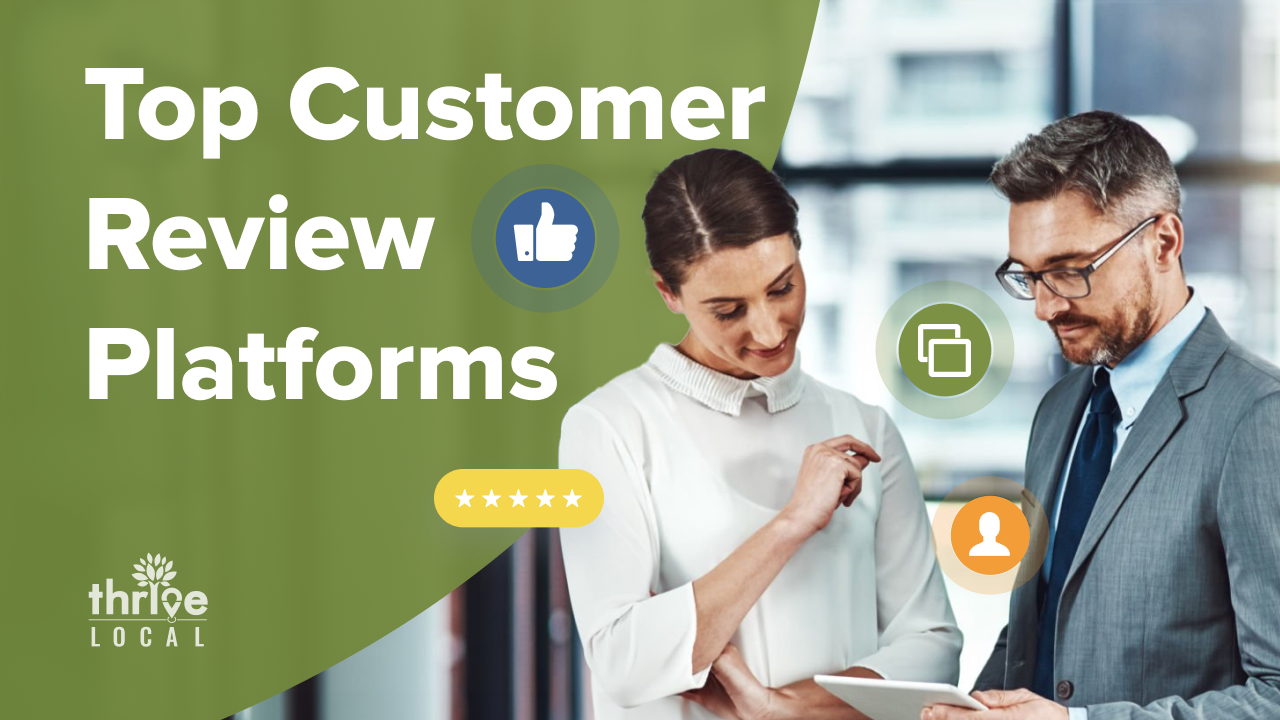How do current and potential customers perceive your brand? Is your online reputation generally positive, or are there negative reviews regarding your business, product or service?
The answer is more important than you might think.
Your online reputation dictates how the public perceives your brand and influences their decision to choose your products or services. Beyond that, research shows that organizations with a positive online reputation consistently outperform those who do not. For instance, nearly 80% of consumers trust reviews as much as recommendations from family and friends, and businesses with high reputation scores have 5% faster sales growth than those that do not.
The services of a reliable and effective online reputation management (ORM) agency can be invaluable for managing your online presence and keeping your brand’s image in check.
But with a slew of ORM companies online, how do you know which one to choose? To help you with your search, here are some essential questions to ask when selecting the right ORM agency for your business:
1. What services are included in your ORM campaigns?
2. Do you have experience dealing with crises?
3. Is your approach to ORM proactive or reactive?
4. Do you have experience in SEO?
5. Who will be managing my ORM campaign on a day-to-day basis?
6. How will you handle negative reviews about my business?
7. How do you keep your clients informed about the progress of their ORM campaigns?
8. Do you have any case studies and client testimonials?
9. What do you need from me?
1. “What services are included in your ORM campaigns?”
Why it matters:
The answer might reveal areas the agency’s service offerings don’t cover. It allows you to inquire about additional services or consider if you need to hire another agency or in-house staff.
ORM is a broad field, and agencies offer different services. Some specialize in a few aspects of ORM, such as review management and social media monitoring, while others focus on crisis management.
Choosing an ORM agency whose services align with your reputation management needs and goals is essential. For instance, if your primary concern is what people say about your brand on social media, then you would want to hire an agency specializing in social media ORM specifically.
On the other hand, if you have multiple locations, you’d want to choose a company with experience working with franchises. You wouldn’t want to hire one that only does crisis communications.
Unfortunately, some agencies can be somewhat vague when answering questions like this. They might say, “We do social media monitoring,” or “We improve your brand image through customized solutions.” Don’t settle for generic answers, as these do not paint an accurate picture of the agency’s capabilities and precisely what they do to protect your reputation.
If you’re given this sort of answer, try to dig deeper. You can ask follow-up questions to get more information, such as:
• Will you perform a reputation assessment? How do you go about it?
• What tools or techniques do you use for brand monitoring?
• How do you generate client testimonials?
• Do you have a team that responds to negative feedback or is it all automated?
• When you say you offer “customized solutions,” what does that entail?
2. “Do you have experience dealing with crises?”
Why it matters:
Generally, companies get in touch with ORM agencies when they’re already in a crisis situation.
If this is the case with your business, determine whether the agency you’re considering has experience resolving crises and restoring a brand’s reputation in the aftermath. This important piece of the puzzle can be the difference between containing the situation and suffering lasting reputational damage.
You can ask these follow-up questions to determine whether their expertise aligns with your needs and the industry in which your business operates:
• Can you describe a specific situation in which you had to manage a crisis and what you did to resolve it?
• What types of reputation crises have you handled in the past?
• Can you share specific examples of how you’ve helped businesses in my industry manage reputation crises?
3. “Is your approach to ORM proactive or reactive?”
Why it matters:
While your brand is flourishing online and customers have only good things to say about you, this may not be the case in a month or even a week. It only takes one crisis, like a customer service disaster, a food recall or a particularly scathing review, for public opinion to shift against you.
Ideally, your chosen agency should not only prevent potentially reputation-damaging events but also be equipped to manage and minimize their effects if they do occur.
Proactive measures include:
• Reputation or Brand Monitoring
• Social Media Monitoring/Listening
• Sentiment Analysis
• Crisis Planning
• Review Generation
These are part of a long-term strategy that empowers you to head off potential issues and address challenges swiftly before they become full-blown crises.
Meanwhile, reactive measures lean more toward crisis management instead of prevention. They are short-term approaches implemented in response to a specific negative event. Here are some essential practices:
• Rapid response to negative feedback, comments and articles
• Taking steps to isolate the issue, such as removing harmful content when possible and addressing the root cause of the problem
• Offering solutions and demonstrating commitment to a resolution
• Creating and implementing a reputation repair strategy
• Engaging positively on social media
By combining proactive and reactive measures, an ORM agency can create a comprehensive brand reputation management strategy that safeguards your brand from potential damage and helps you navigate challenging situations effectively.
4. “Do you have experience in SEO?”
Why it matters:
Online reputation management is closely linked with search engine optimization (SEO). SEO is the practice of improving a website’s quality and relevance to boost its visibility in organic search results. The primary goal of getting a website to rank higher in search engine results pages (SERPs) is to boost the quality and quantity of traffic. However, SEO has other benefits, one of which is improving brand awareness and recognition.
While SEO is not meant to repair reputational damage directly, it can help mitigate negative search results by pushing positive and relevant content about your brand higher in search engine rankings. This is particularly true if paired with ORM; specifically, review response and management.
Here’s an example:
A customer had a bad experience at a local bakery, Lenny’s Apple Pies. They posted about it on their blog, which was shared several thousand times. Additionally, they left a scathing one-star review on Lenny’s Apple Pie’s Google My Business page.
As a result, the blog post and the review start showing up on the first page of SERPs. This is harmful to Lenny’s Apple Pies’ online presence and puts off would-be customers, leading to lost sales opportunities in the short term and reputational damage in the long term.
To immediately address the issue, a good ORM agency would swiftly respond to the review and the blog post with a personalized message. They would thank the customer for their honest feedback, politely address the issue, apologize if appropriate and offer to take the conversation offline to discuss a resolution.
A great ORM agency would then leverage SEO to prevent further reputational damage. Steps to take might include creating high-quality content that showcases the deliciousness of Lenny’s Apple Pies and highlighting the positive experiences of satisfied customers on the Lenny’s Apple Pies website. This will help shape a more positive online narrative in search results.
While SEO is a long-term approach that will take a while for significant results to show, it’s a valuable strategy that delivers excellent return on investment (ROI). Even starting now with basic SEO practices and addressing negative reviews directly can support crisis management efforts, helping brands mitigate the immediate impact of a bad review and build a stronger online reputation for the future.
5. “Who will be managing my ORM campaign on a day-to-day basis?”
Why it matters:
The answer to this question allows you to learn more about the expertise and experience of the team managing your brand’s reputation. Ideally, your ORM agency will have a team of specialists to tailor customized solutions for your ORM needs. This might include ORM specialists to perform a reputation assessment, a project manager to oversee your campaign, social media experts to conduct brand monitoring as well as writers to craft review responses and content to build a positive narrative for your brand.
Additionally, asking this question allows you to confirm if you will have a dedicated point of contact, which can be crucial when issues emerge that need swift action. You don’t want to call a general toll-free number and go through automated menus to find someone to voice your concerns to.
Ideally, your ORM agency will assign a dedicated account manager who understands your brand, its online presence and your specific goals. This point of contact will become your go-to person for all things ORM, allowing for a smooth flow of communication and a more personalized approach to managing your reputation.
6. “How will you handle negative reviews about my business?”
Why this is important: The answer to this question provides insights into how an agency approaches ORM, from the technical to the ethical aspects.
A good ORM agency understands the importance of reviews to a brand’s online reputation. They have the knowledge and tools to develop a long-term strategy not just for review generation but also managing negative feedback.
The ORM agency you’re considering should be able to provide you with a detailed overview of their review management process. However, if the agency you’re considering promises to delete negative reviews from your Google Business Profile or social media profiles, think twice about choosing it.
“Bold promises and saying they can delete negative reviews but don’t explain why red flags are red flags,” warns Tim Clarke, Senior Reputation Manager at Thrive Local.
Eliminating negative reviews is unrealistic and unlikely. An agency claiming to have this capability might resort to black hat tactics to reduce negative reviews or even pressure reviewers to delete their feedback by offering incentives.
While this aggressive approach might sound like a good idea, Google’s spam detection algorithms are sophisticated and constantly evolving. Manipulating reviews could lead to the search engine subjecting your business profile to increased scrutiny.
What’s more, If Google detects attempts to manipulate reviews, it could penalize your entire business profile. This could involve pushing your profile and website lower in SERPs, therefore making it harder for potential customers to find you. In severe cases, the search engine could even remove your profile.
Even if your profile isn’t removed, manipulating your reviews can damage your reputation. Customers who discover your brand uses these tactics will likely lose trust in your business.
Instead, choose an agency that is transparent about its approach to reputation management and uses only ethical ORM practices. A long-term strategy composed of white hat and proven tactics, such as reputation assessment, reputation monitoring and review management, delivers sustainable results based on genuine customer experiences, all without risking your standing with Google and your online reputation.
7. “How do you keep your clients informed about the progress of their ORM campaigns?”
Why it matters:
Effective communication is paramount for successful ORM campaigns. Before signing on with an ORM company, you need to know how it measures success, tracks progress and keeps you informed.
A reputable ORM agency should have clear key performance indicators (KPIs) in place to gauge the success of their campaigns. Examples of common ORM KPIs include:
• Organic Search Rankings
• Website Traffic
• Review Volume and Frequency
• Percentage of Negative Reviews
• Percentage of Reviews Responded To
• Social Media Engagement
Ask the agency what KPIs they use and how they set their goals. You can then follow up with questions on how they keep you informed of your ORM campaign’s progress and effectiveness.
Ensure that the ORM company has regular reporting methods in place, such as weekly or monthly updates and meetings. Inquire about how often they will provide you with reports, what these reports include and if they use any tools to track progress.
8. “Do you have any case studies and client testimonials?”
Why it matters:
An ORM agency can claim to have the best, most effective services, but results always speak louder than words. It’s crucial for an ORM agency to provide case studies and client testimonials as evidence of their expertise and the effectiveness of their ORM approach.
Case studies give a comprehensive overview of how an ORM agency has helped other businesses in similar situations. They showcase the strategies used, challenges faced and the results achieved. When reviewing a case study, evaluate the specifics of the issue, the agency’s approach and whether it succeeded.
Meanwhile, client testimonials provide valuable insight into the experiences of people who have worked with the ORM agency. Pay attention to these reviews and look for patterns and signs of success. Search for feedback that goes beyond generic praises, and focus on comments that highlight the ORM agency’s strategies, their level of professionalism and how well they communicate with clients.
9. “What do you need from me?”
Why it matters:
A successful ORM campaign requires a healthy collaboration between your business and the ORM agency. It’s essential to know what information you need to provide and how hands-on you need to be.
You might need to provide access to valuable data, such as customer feedback and analytics reports, to help the ORM agency understand the current state of your online reputation and devise appropriate strategies. Inquire about the specific tools the agency plans to use and what kind of information they would require from you.
Clarify the level of involvement you would need to have in the ORM campaign, including decision-making, approvals and updates. If you prefer a fully managed service, be sure to confirm whether the agency you’re considering offers this option.
At Thrive Local, we offer a fully managed option, which means our team does all the setup and support. For review generation, we send unlimited emails, SMS, and QR codes to clients, making generating reviews straightforward and eliminating the need to learn a new technology or software.
As Clarke explained, “Our clients are busy, so we make it easy and not time-consuming to generate reviews. We also do a lot of automation with API and other simple integrations so our clients only need a few manual processes to be successful.”
Protect and Repair Your Online Reputation With the Help of Thrive Local
At Thrive Local, we leverage both short-term and long-term ORM strategies to improve, protect and maintain our clients’ online reputation. Our areas of expertise include SEO, review generation and social media management. We are responsive and agile to potential crisis situations, while our multidisciplinary approach across all consumer touchpoints ensures a consistent and positive brand narrative that builds trust and drives business growth for our clients.
To learn more about our online reputation management services, reach out to us for a free consultation.








